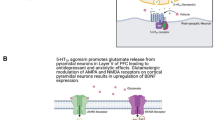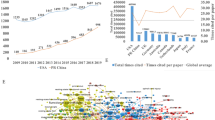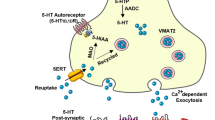Abstract
Inhibition of monoamine oxidase (MAO)-A/B can ameliorate depressive- and anxiety-related symptoms via increase of monoamine extracellular levels. However, such inhibition can also instigate hypertensive response following exposure to dietary tyramine (i.e., “the cheese effect”). Novel herbal treatment (NHT) is an herbal formula that has been demonstrated to reduce depressive- and anxiety-like symptoms in pre-clinical studies. The aim of the current study was to examine whether the therapeutic potential of NHT is underlain by inhibition of MAO-A/B and whether NHT poses a risk for tyramine hyper-potentiation. Unpredictable chronic mild stress (UCMS)–exposed mice and naïve mice were treated for 3 weeks with NHT (30 mg/kg; i.p.), the selective serotonin reuptake inhibitor (SSRI) escitalopram (15 mg/kg; i.p.), or saline. Subsequently, MAO-A/B activities in the hypothalamus, striatum, and prefrontal cortex (PFC) were assessed. Exposure to UCMS led to significant increases in both MAO-A and MAO-B activities in the hypothalamus (p < 0.001) and in the PFC (p < 0.01 for MAO-A; p < 0.001 for MAO-B). Neither NHT nor escitalopram had any notable effects. Treatment with NHT was supported as safe in terms of risk for inducing a hypertensive response. The antidepressant- and anxiolytic-like effects of NHT are mediated via pathways other than MAO-A/B inhibition.



Similar content being viewed by others
References
Aluf Y, Vaya J, Khatib S, Loboda Y, Finberg JPM (2013) Selective inhibition of monoamine oxidase A or B reduces striatal oxidative stress in rats with partial depletion of the nigro-striatal dopaminergic pathway. Neuropharmacology. 65:48–57. https://doi.org/10.1016/j.neuropharm.2012.08.023
Anderson MC, Hasan F, McCrodden JM, Tipton KF (1993) Monoamine oxidase inhibitors and the cheese effect. Neurochem Res 18:1145–1149. https://doi.org/10.1007/BF00978365
Baldwin DS, Waldman S, Allgulander C (2011) Evidence-based pharmacological treatment of generalized anxiety disorder. Int J Neuropsychopharmacol 14:697–710. https://doi.org/10.1017/S1461145710001434
Barrera TL, Norton PJ (2009) Quality of life impairment in generalized anxiety disorder, social phobia, and panic disorder. J Anxiety Disord 23:1086–1090. https://doi.org/10.1016/j.janxdis.2009.07.011
Blackwell B (1963) Hypertensive crisis due to monoamine-oxidase inhibitors. Lancet 282:849–851. https://doi.org/10.1016/S0140-6736(63)92743-0
Blackwell B, Mabbitt LA (1965) Tyramine in cheese related to hypertensive crises after monoamine-oxidase inhibition. Lancet 285:938–940. https://doi.org/10.1016/S0140-6736(65)91257-2
Boyer EW, Shannon M (2005) The serotonin syndrome. N Engl J Med 352:1112–1120. https://doi.org/10.1056/NEJMra041867
Burstein O, Doron R (2018) The unpredictable chronic mild stress protocol for inducing anhedonia in mice. J Vis Exp. https://doi.org/10.3791/58184
Burstein O, Franko M, Gale E, Handelsman A, Barak S, Motsan S, Shamir A, Toledano R, Simhon O, Hirshler Y, Chen G, Doron R (2017) Escitalopram and NHT normalized stress-induced anhedonia and molecular neuroadaptations in a mouse model of depression. PLoS One 12. https://doi.org/10.1371/journal.pone.0188043
Calhoon GG, Tye KM (2015) Resolving the neural circuits of anxiety. Nat Neurosci 18:1394–1404
Canli T, Lesch KP (2007) Long story short: the serotonin transporter in emotion regulation and social cognition. Nat Neurosci 10:1103–1109
Cascade E, Kalali AH, Kennedy SH (2009) Real-world data on SSRI antidepressant side effects. Psychiatry (Edgemont) 6:16–18. https://doi.org/10.3928/00904481-20120727-02
Davidson JRT (2010) Major depressive disorder treatment guidelines in America and Europe. J Clin Psychiatry 71. https://doi.org/10.4088/JCP.9058se1c.04gry
Doom JR, Haeffel GJ (2013) Teasing apart the effects of cognition, stress, and depression on health. Am J Health Behav 37:610–619. https://doi.org/10.5993/AJHB.37.5.4
Doron R, Lotan D, Einat N, Yaffe R, Winer A, Marom I, Meron G, Kately N, Rehavi M (2014a) A novel herbal treatment reduces depressive-like behaviors and increases BDNF levels in the brain of stressed mice. Life Sci 94:151–157. https://doi.org/10.1016/j.lfs.2013.10.025
Doron R, Lotan D, Versano Z, Benatav L, Franko M, Armoza S, Kately N, Rehavi M (2014b) Escitalopram or novel herbal mixture treatments during or following exposure to stress reduce anxiety-like behavior through corticosterone and BDNF modifications. PLoS One 9. https://doi.org/10.1371/journal.pone.0091455
Doron R, Sever A, Handelsman A, Toledano R, Franko M, Hirshler Y, Shamir A, Burstein O, Rehavi M (2018) GABAA receptor density is not altered by a novel herbal anxiolytic treatment. J Mol Neurosci 65:110–117. https://doi.org/10.1007/s12031-018-1078-2
Ducottet C, Belzung C (2004) Behaviour in the elevated plus-maze predicts coping after subchronic mild stress in mice. Physiol Behav 81:417–426. https://doi.org/10.1016/j.physbeh.2004.01.013
Duncan J, Johnson S, Ou X-M (2012) Monoamine oxidases in major depressive disorder and alcoholism. Drug Discov Ther 6:112–122. https://doi.org/10.5582/ddt.2012.v6.3.112
Elsworth JD, Glover V, Reynolds GP, Sandler M, Lees AJ, Phuapradit P, Shaw KM, Stern GM, Kumar P (1978) Deprenyl administration in man: a selective monoamine oxidase B inhibitor without the “cheese effect”. Psychopharmacology 57:33–38. https://doi.org/10.1007/BF00426954
Fagervall I, Ross SB (1986) A and B forms of monoamine oxidase within the monoaminergic neurons of the rat brain. J Neurochem 47:569–576. https://doi.org/10.1111/j.1471-4159.1986.tb04537.x
Finberg JPM (2014) Update on the pharmacology of selective inhibitors of MAO-A and MAO-B: focus on modulation of CNS monoamine neurotransmitter release. Pharmacol Ther 143:133–152. https://doi.org/10.1016/j.pharmthera.2014.02.010
Finberg JPM, Gillman K (2011) Selective inhibitors of monoamine oxidase type B and the “cheese effect”. Int Rev Neurobiol 100:169–190. https://doi.org/10.1016/B978-0-12-386467-3.00009-1
Hamon M, Blier P (2013) Monoamine neurocircuitry in depression and strategies for new treatments. Prog Neuro-Psychopharmacology Biol Psychiatry 45:54–63
Kato T, Dong B, Ishii K, Kinemuchi H (1986) Brain dialysis: in vivo metabolism of dopamine and serotonin by monoamine oxidase A but not B in the striatum of unrestrained rats. J Neurochem 46:1277–1282. https://doi.org/10.1111/j.1471-4159.1986.tb00650.x
Khawam EA, Laurencic G, Malone DA (2006) Side effects of antidepressants: an overview. Cleve Clin J Med 73:351–361
Krishnan V, Nestler EJ (2010) Linking molecules to mood: new insight into the biology of depression. Am J Psychiatry 167:1305–1320
Lam RW, McIntosh D, Wang J, Enns MW, Kolivakis T, Michalak EE, Sareen J, Song WY, Kennedy SH, MacQueen GM, Milev RV, Parikh SV, Ravindran AV, the CANMAT Depression Work Group (2016) Canadian Network for Mood and Anxiety Treatments (CANMAT) 2016 clinical guidelines for the management of adults with major depressive disorder. Can J Psychiatr 61:510–523. https://doi.org/10.1177/0706743716659416
Lin YH, Liu AH, Xu Y et al (2005) Effect of chronic unpredictable mild stress on brain-pancreas relative protein in rat brain and pancreas. Behav Brain Res 165:63–71. https://doi.org/10.1016/j.bbr.2005.06.034
Lowry OH, Rosebrough NJ, Farr AL, Randall RJ (1951) Protein measurement with the Folin-phenol reagent. J Biol Cemistry 30:361–362. https://doi.org/10.1016/0304-3894(92)87011-4
Lutz CM, Linder CC, Davisson MT (2012) Strains, stocks and mutant mice. In: The laboratory mouse, pp 37–56
Masand PS, Gupta S (2002) Long-term side effects of newer-generation antidepressants: SSRIS, venlafaxine, nefazodone, bupropion, and mirtazapine. Ann Clin Psychiatry 14:175–182
Massart R, Mongeau R, Lanfumey L (2012) Beyond the monoaminergic hypothesis: neuroplasticity and epigenetic changes in a transgenic mouse model of depression. Philos Trans R Soc B Biol Sci 367:2485–2494. https://doi.org/10.1098/rstb.2012.0212
Meyer JH, Ginovart N, Boovariwala A, Sagrati S, Hussey D, Garcia A, Young T, Praschak-Rieder N, Wilson AA, Houle S (2006) Elevated monoamine oxidase A levels in the brain: an explanation for the monoamine imbalance of major depression. Arch Gen Psychiatry 63:1209. https://doi.org/10.1001/archpsyc.63.11.1209
Morilak DA, Frazer A (2004) Antidepressants and brain monoaminergic systems: a dimensional approach to understanding their behavioural effects in depression and anxiety disorders. Int J Neuropsychopharmacol 7:193–218. https://doi.org/10.1017/S1461145704004080
Mykletun A, Bjerkeset O, Øverland S et al (2009) Levels of anxiety and depression as predictors of mortality: the HUNT study. Br J Psychiatry 195:118–125. https://doi.org/10.1192/bjp.bp.108.054866
Pletscher A (1991) The discovery of antidepressants: a winding path. Experientia 47:4–8
Rai D, Zitko P, Jones K, Lynch J, Araya R (2013) Country- and individual-level socioeconomic determinants of depression: multilevel cross-national comparison. Br J Psychiatry 202:195–203
Rao N (2007) The clinical pharmacokinetics of escitalopram. Clin Pharmacokinet 46:281–290
Ravindran LN, Stein MB (2010) The pharmacologic treatment of anxiety disorders: a review of progress. J Clin Psychiatry 71:839–854. https://doi.org/10.4088/JCP.10r06218blu
Rickels K, Rynn M, Iyengar M, Duff D (2006) Remission of generalized anxiety disorder: a review of the paroxetine clinical trials database. J Clin Psychiatry 67:41–47
Scheid V, Bensky D, Ellis A, Barolet R (2009) Chinese herbal medicine: formulas and strategies, 2nd edn. Eastland Press, WA, USA
Shih JC, Chen K, Ridd MJ (1999) Monoamine oxidase: from genes to behavior. Annu Rev Neurosci 22:197–217. https://doi.org/10.1146/annurev.neuro.22.1.197
Shioda K, Nisijima K, Yoshino T, Kato S (2004) Extracellular serotonin, dopamine and glutamate levels are elevated in the hypothalamus in a serotonin syndrome animal model induced by tranylcypromine and fluoxetine. Prog Neuro-Psychopharmacology Biol Psychiatry 28:633–640. https://doi.org/10.1016/j.pnpbp.2004.01.013
Stahl SM, Felker A (2008) Monoamine oxidase inhibitors: a modern guide to an unrequited class of antidepressants. CNS Spectr 13:855–871. https://doi.org/10.1017/S1092852900016965
Steel Z, Marnane C, Iranpour C, Chey T, Jackson JW, Patel V, Silove D (2014) The global prevalence of common mental disorders: a systematic review and meta-analysis 1980-2013. Int J Epidemiol 43:476–493. https://doi.org/10.1093/ije/dyu038
Thase ME, Entsuah AR, Rudolph RL (2001) Remission rates during treatment with venlafaxine or selective serotonin reuptake inhibitors. Br J Psychiatry 178:234–241. https://doi.org/10.1192/bjp.178.3.234
Thase ME, Haight BR, Richard N, Rockett CB, Mitton M, Modell JG, VanMeter S, Harriett AE, Wang Y (2005) Remission rates following antidepressant therapy with bupropion or selective serotonin reuptake inhibitors: a meta-analysis of original data from 7 randomized controlled trials. J Clin Psychiatry 66:974–981. https://doi.org/10.4088/JCP.v66n0803
Tipton KF, Boyce S, O’Sullivan J et al (2004) Monoamine oxidases: certainties and uncertainties. Curr Med Chem 11:1965–1982. https://doi.org/10.2174/0929867043364810
Tong J, Meyer JH, Furukawa Y, Boileau I, Chang LJ, Wilson AA, Houle S (2013) Distribution of monoamine oxidase proteins in human brain: implications for brain imaging studies. J Cereb Blood Flow Metab 33:863–871. https://doi.org/10.1038/jcbfm.2013.19
Trivedi MH, Rush AJ, Wisniewski SR, Nierenberg AA, Warden D, Ritz L, Norquist G, Howland RH, Lebowitz B, McGrath PJ, Shores-Wilson K, Biggs MM, Balasubramani GK, Fava M, STAR*D Study Team (2006) Evaluation of outcomes with citalopram for depression using measurement-based care in STAR*D: implications for clinical practice. Am J Psychiatry 163:28–40. https://doi.org/10.1176/appi.ajp.163.1.28
Wachtel SR, Abercrombie ED (1994) L-3,4-Dihydroxyphenylalanine-induced dopamine release in the striatum of intact and 6-hydroxydopamine-treated rats: differential effects of monoamine oxidase A and B inhibitors. J Neurochem 63:108–117. https://doi.org/10.1046/j.1471-4159.1994.63010108.x
Whiteford HA, Degenhardt L, Rehm J, Baxter AJ, Ferrari AJ, Erskine HE, Charlson FJ, Norman RE, Flaxman AD, Johns N, Burstein R, Murray CJL, Vos T (2013) Global burden of disease attributable to mental and substance use disorders: findings from the Global Burden of Disease Study 2010. Lancet 382:1575–1586. https://doi.org/10.1016/S0140-6736(13)61611-6
Willner P (1984) The validity of animal models of depression. Psychopharmacology 83:1–16
World Health Organization (2003) WHO guidelines on good agricultural and collection practices (GACP) for medicinal plants
World Health Organization (2017) Depression and other common mental disorders
Yeung WF, Chung KF, Ng KY, Yu YM, Tat-Chi Ziea E, Fung-Leung Ng B (2014) A meta-analysis of the efficacy and safety of traditional Chinese medicine formula Ganmai Dazao decoction for depression. J Ethnopharmacol 153:309–317
Youdim MBH, Edmondson D, Tipton KF (2006) The therapeutic potential of monoamine oxidase inhibitors. Nat Rev Neurosci 7:295–309. https://doi.org/10.1038/nrn1883
Acknowledgments
The authors would like to thank Nadav Kately for inventing and developing the NHT formula, Yafit Hirshler for her support in the realization of the manuscript, and Dr. Fong-pin Liang from KPC for his support in gathering data regarding the herbal compounds of NHT used in this study.
Author information
Authors and Affiliations
Corresponding author
Ethics declarations
Ethical Approval
All procedures were performed in accordance with the ethical standards of The Academic College Tel Aviv Yaffo Committee for Animal Care and Use, and The Guide for the Care and Use of Laboratory Animals of the National Institutes of Health guidelines were followed.
Conflict of Interest
Ravid Doron has an approved patent relating to the herbal treatment for anxiety disorders (patent no. 9,320,772, USA). Other than that, all authors assert that none has any commercial or financial involvements that might present an appearance of a conflict of interest in connection with the submitted manuscript.
Additional information
Publisher’s Note
Springer Nature remains neutral with regard to jurisdictional claims in published maps and institutional affiliations.
Electronic Supplementary Material
Supplementary Figure 1
(PDF 58 kb)
Rights and permissions
About this article
Cite this article
Doron, R., Versano, Z., Burstein, O. et al. Cerebral MAO Activity Is Not Altered by a Novel Herbal Antidepressant Treatment. J Mol Neurosci 69, 371–379 (2019). https://doi.org/10.1007/s12031-019-01366-0
Received:
Accepted:
Published:
Issue Date:
DOI: https://doi.org/10.1007/s12031-019-01366-0




